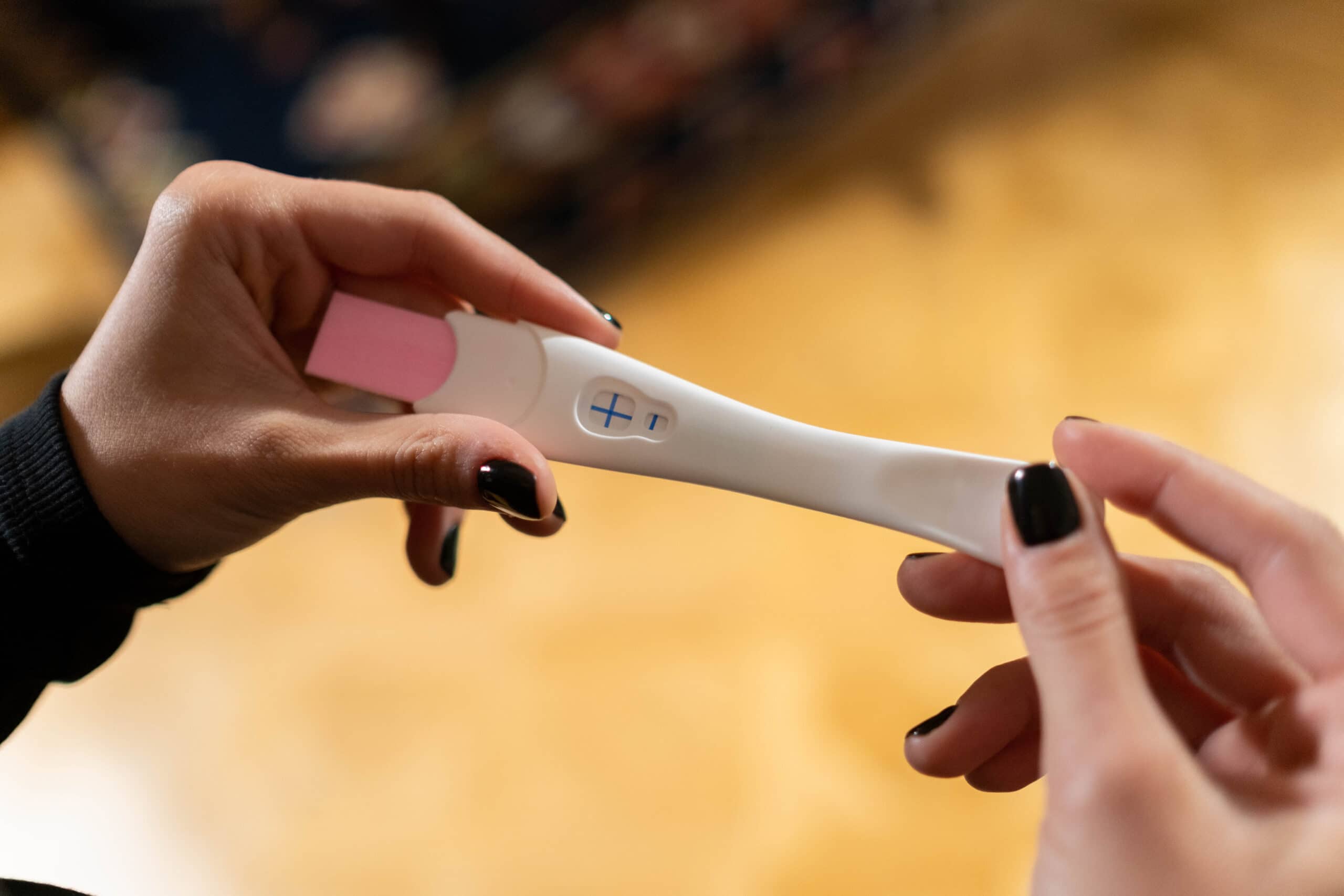My Fertility Journey explains the important steps to take when planning a pregnancy to give you the best chance of conceiving and having a healthy pregnancy and a healthy baby. It provides evidence-based information to help prepare your body in the important months before conception. Reliable scientific information underpins everything we do and helps you go forward with confidence as you lay the foundations for the future health of your baby.
Trying to Conceive
Understanding the important steps to take when you first start trying to conceive can help your fertility journey go smoothly. In this section we look at:
- General health and fertility
- Why egg and sperm quality are important
- The Balance Plan 10 steps to conception
If you are trying to conceive naturally, you should continue having unprotected intercourse for 12 months before consulting a doctor for fertility investigations. It’s helpful to understand when you are most likely to conceive so you have sex at the right time. If you aren’t able to conceive naturally either due to infertility, because you are in a same-sex relationship or are transgender, the sections that follow apply to you too, depending on whether you are menstruating or supplying eggs or sperm to your treatment.
There are certain circumstances in which you should seek medical help sooner than the 12 months, for example if you have any indication of something that may be affecting your fertility including irregular periods, painful intercourse, severe period pain, you have a known medical condition that affects your fertility, or if you are over 35. Also, if a male partner has had any operations on his testes or any other chronic illness that he thinks may affect his fertility, it is worth getting checked out sooner.
If you are to carry the pregnancy, you can request routine preconception blood tests for vitamin D, ferritin, folate, B12, zinc and copper, as well as for things like rubella immunity immediately before you start having unprotected sex or starting fertility treatment. See our Ten Steps to Conception below.
If you haven’t conceived after trying for the appropriate time naturally, you will need to have some initial investigations to identify if you have any underlying problems that are preventing you from getting pregnant.

General health and fertility
Your general health and wellbeing affect your reproductive health and fertility, so preparing for pregnancy is important in order to help you conceive and also for the health of the baby. A healthy menstrual cycle is also important for fertility, so identifying any problems early will mean you don’t wait too long before seeking advice. This can save you a lot of time and unnecessary stress. If you suffer from a condition such as Polycystic Ovary Syndrome (PCOS), for instance, this will mean you might not be ovulating and so it is important to be investigated and treated where necessary. You can find out more in our Preconception Care and Problems Conceiving pages.
Why egg and sperm quality are important
Your general health, diet, and lifestyle can affect your fertility by having an impact on egg and sperm health. It is a combination of good quality eggs and sperm that together affect the chances of conceiving and going on to have a healthy baby, though egg quality is particularly important. Whereas men provide only DNA (genetic material) via their sperm to the early embryo upon fertilisation, the egg provides all the cellular machinery needed for early development, which is why oocyte quality is so important. A good quality egg can correct defects in early embryonic development via this machinery and can compensate for poor quality sperm, reinforcing the need for good preconception care for both parties even where an issue has been identified with only one partner. It is also why the combined age of a couple can affect your chance of conceiving as a younger woman’s eggs can compensate for potentially poor older sperm DNA in this way. Egg and sperm quality are affected primarily by age but also by diet, nutrient status, and lifestyle, making preconception care vital. Improving egg quality can improve outcomes and we have seen improvements in the number of mature eggs collected, number of eggs fertilised and number of embryos reaching a good stage of development (the 5-day stage known as the blastocyst) in repeat IVF cycles after couples improve their diet and lifestyle, for instance, and egg quality is the main thing that impacts IVF success.

The Balance Plan 10 steps to conception
The starting point for all couples who are in good health and wish to start trying to conceive naturally or via fertility treatment is to take a series of basic steps at least six months before you start to try for a baby. Don’t worry if you haven’t planned for this; just start whenever you can.
The basic steps that are essential when planning a pregnancy are:
-
- Smoking – stop as early as possible. This is important for both men and women. Smoking can make women lose their eggs more quickly and women who smoke are twice as likely to be infertile as non-smokers, even if you have already been pregnant before. Smoking also reduces the chance of success with fertility treatments including IVF. The risks increase the more you smoke and Women who smoke are twice as likely to be infertile as non-smokers. This is true for women trying to become pregnant for the first time and for women who have been pregnant before. Smoking can also affect the success rates of fertility treatment, such as IVF (In vitro fertilisation). Smoking during pregnancy can harm the baby, especially the lungs and brain. Smoking may also increase the risk of miscarriage
- Alcohol consumption – avoid drinking alcohol altogether for women or those planning to carry a pregnancy. High alcohol intake (seven or more drinks a week or more than three drinks on one occasion) is associated with heavy or irregular periods and reduced fertility. Alcohol can also affect ovulation, hormone levels (even where periods appear normal), reduce ovarian reserve, and decrease the chance of success following IVF. One study found that women going through IVF who drank one or more drinks a day had more than twice the risk of miscarriage, with an even higher risk when drinking in the week before IVF treatment. One daily drink also reduced both the number of eggs retrieved and pregnancy rates. Alcohol during pregnancy is increases risks to the baby, including having a child with a Fetal Alcohol Spectrum Disorder and lower chance of live birth. Keep alcohol to a minimum for male fertility – aim for no more than 12 units per week and ideally less than 5.
- Do not use recreational drugs – drugs such as cannabis, cocaine, ecstasy, ketamine and amphetamines all have the potential to negatively impact fertility in men and women, including delaying conception in women who are trying to conceive. They can also cause significant harm if taken during pregnancy. Cannabis can affect hormone balance and therefore may make it more difficult to get pregnant, for instance.
- Take the basic supplements and get tested – official guidance recommends taking 400mcg folic acid daily for three months before you start trying to conceive, though many benefit from taking the natural form, folate, and some need higher amounts. Most need to supplement with vitamin D, especially in the winter months. It’s helpful to have some basic nutrient testing such as vitamin D, folate, ferritin (to check iron), zinc and copper to ensure you have sufficient levels of these important nutrients for fertility and pregnancy.
- Caffeine – avoid overconsumption – consensus suggests not drinking more than 2 cups of tea or coffee if you are trying to conceive. This advice holds for men and women. Research looking at the impact of caffeine including tea and coffee consumption on fertility is very mixed, with some studies showing it has an impact at lower levels and others not. A recent analysis found coffee and caffeine consumption did not reduce the chance of getting pregnant naturally or through fertility treatment. Higher levels have been shown to have an impact. Guidance from organisations including the European Food Safety Authority (EFSA) and World Health Organization (WHO) suggest limiting intake to maximum of two to three cups of coffee (200–300 mg caffeine) per day. Studies also show an increased risk of miscarriage with increasing intake of coffee and caffeine during early pregnancy and a recent meta-analysis found there was no safe intake for pregnancy. Opinion is divided however and many national guidelines have maintained advice to limit rather than cut out completely for fertility and pregnancy. On balance, we advise our female patients to limit to no more than one cup daily as a precaution, though some choose to cut caffeine out altogether.
- Weight – aim for a healthy body mass index (BMI) – being underweight or overweight is sub-optimal for fertility and pregnancy and we cover this in Fertility, Weight and Metabolism.
- Manage pre-existing health issues – make sure you are assessed, managed and under the care of a suitable doctor for any health problems and discuss any medications with your doctor.
- Sexually transmitted infection (STI) check – full screening for both men and women. Ask your doctor for these checks before you start trying to conceive. This includes testing for chlamydia, gonorrhoea and HIV. Chlamydia and gonorrhea are important preventable causes of pelvic inflammatory disease (PID – an infection that reaches and damages the fallopian tubes) and infertility. Chlamydia and gonorrhoea are tested by either urine or a cotton swab that is inserted into the vagina (women). You’ll be prescribed antibiotics if you have an infection. You may also be tested for syphilis and hepatitis. Also seek advice from your doctor if you have any charges to your normal vaginal discharge, an unpleasant or fishy smell from your vagina, itching in your vagina or around your vulva, or burning when you pass urine. These can all be signs of a condition called bacterial vaginosis when there is too much of certain naturally occurring bacteria in the vagina leading to an imbalance. This can be treated with antibiotics.
- Smear test – be up to date with smear tests and ensure your latest result was negative. Smear tests screen for changes in the cells of the cervix (that connects the vagina and the womb) that can lead to cervical cancer if left untreated. The most common cause of these cell changes and cervical cancer is infection with the Human Papilloma Virus (HPV). This is not always transmitted through penetrative sex and can be passed on from the hands and mouth of a sexual partner. Vaccines against HPV do not protect against all strains and so you should still have regular screening even if you have had a vaccine. Smear tests are recommended every three years unless you have had recent treatment for an abnormal smear or have a current HPV infection, which will show up on your smear test. Smear tests are not advised during pregnancy and so if you are due to have a test within the next year, ask your doctor to have this done before you start trying to conceive and monitor the situation if it takes time for you to conceive. Smear tests are the best way to avoid avoidable death from cervical cancer, so always ensure you are checked, even if you feel apprehensive about the process. An uncomfortable 10 minutes is better than dying young from a preventable death.
- Rubella immunity – check immunity via blood test via your GP. Rubella or German Measles is a viral infection that is often mild and may not be detected. It is extremely dangerous for the unborn baby and cause birth defects if you are infected during pregnancy. Most people are vaccinated in childhood but immunity can lapse so even if you have had the Measles Mumps and Rubella (MMR) vaccine, women are advised to undergo rubella immunity testing before trying to conceive. If you have not had the MMR vaccine or if testing shows you are not immune, you should be vaccinated.

References
- Adam Balen and Grace Dugdale. The Fertility Book: Your Definitive Guide to Achieving a Healthy Pregnancy. Penguin Random House (Vermilion) 2021
Copyright © 2024 Balance Fertility